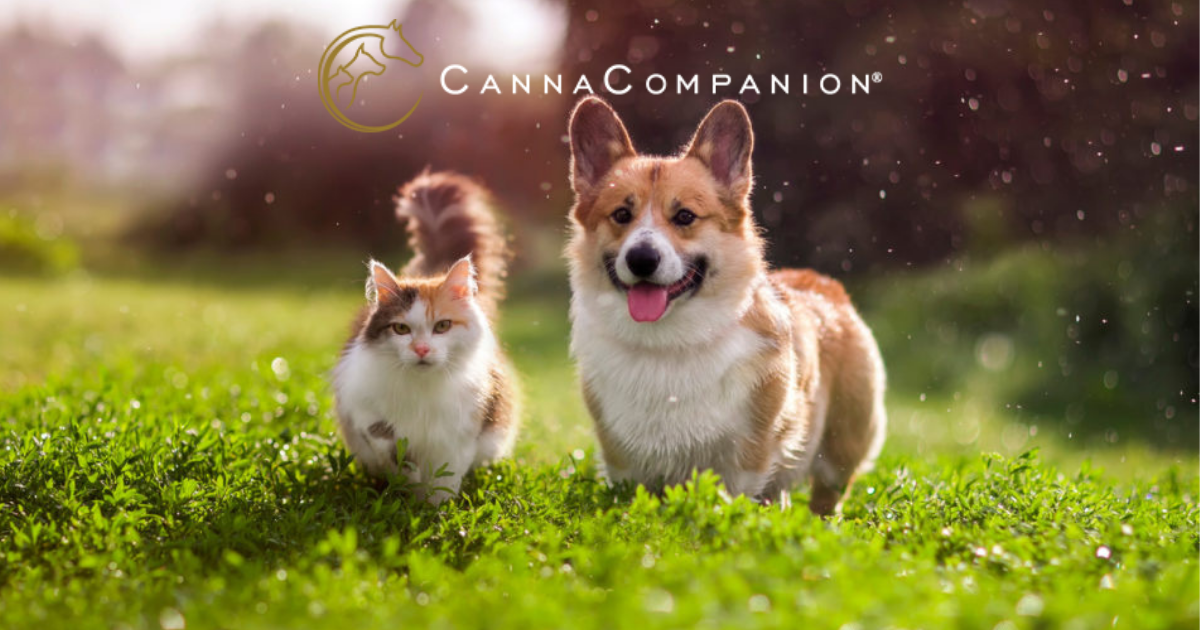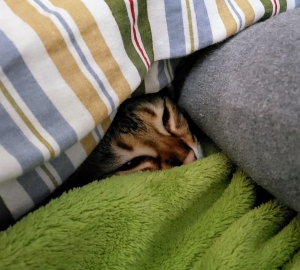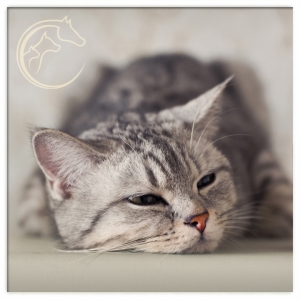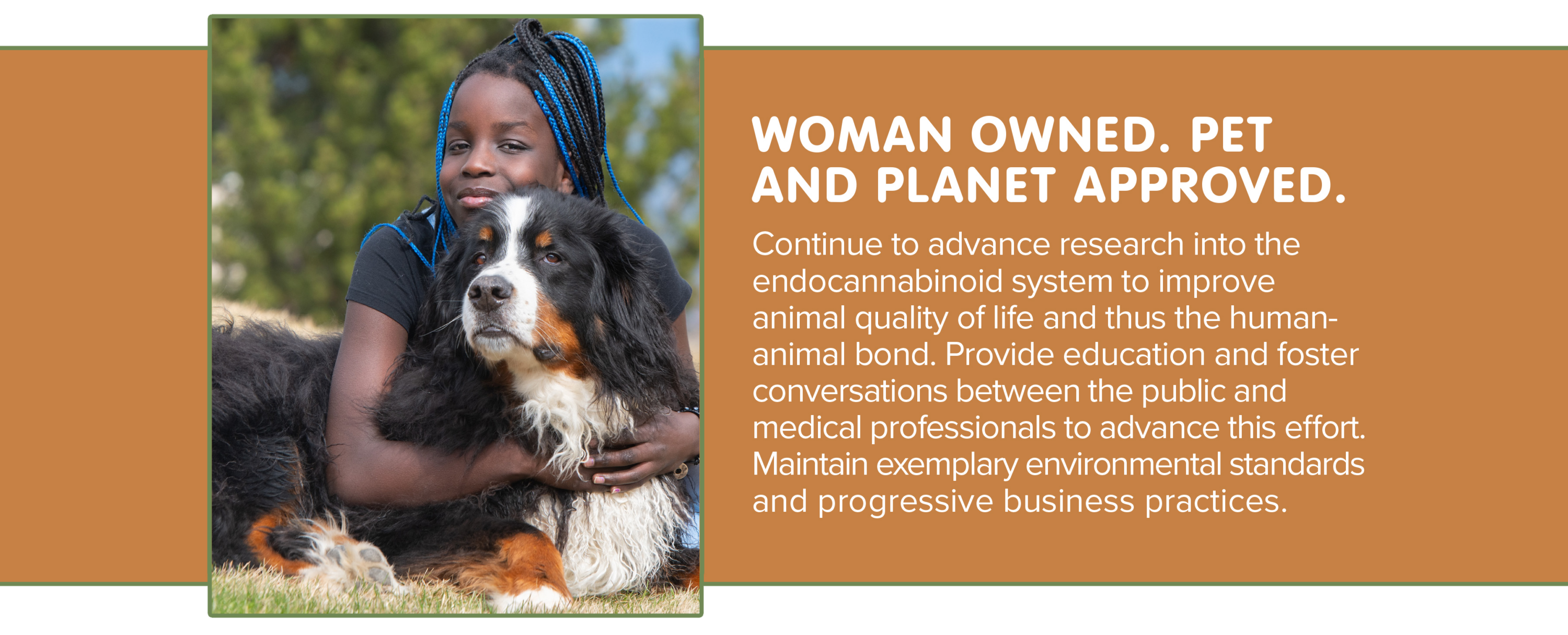CBD & Situational Anxiety in Cats
Situational anxieties are something none of us want to face. As pet parents, it can make us feel powerless when we cannot protect our furry companions. After all, they look to us to keep them happy and safe. Many of the situational anxieties cats and dogs face are the same, but individual pets and their responses to various therapies can differ greatly — what benefits one may not help the next, especially with our feline friends. The first step in treating situational anxiety is to identify the cause.
Causes of Situational Anxiety in Cats
As you can imagine, and perhaps have observed first hand, cats can seemingly ‘freak out’ over the smallest things. They love their routines and any deviation from such can create a lot of stress. Let’s take a look at common changes to your cat’s routine and how it might cause anxiety.
- Traveling by car — to the veterinarian, groomer, or vacation home — offers loud noises, vibrations, and usually a destination low on the list of cat favorites.
- Traveling by plane — to anywhere; cats generally can’t stand noisy places and these are the loudest.
- Separation from preferred humans — applicable year round but especially when humans like to take extended vacations over the holidays. Your cat loves you and is loath to be apart.
- Addition of extra humans in the home — common during holidays and school breaks — while your cat may love attention, sometimes it can simply be too much.
- History of traumatic experiences — PTSD is especially common in shelter adoptions, cats with feral histories, painful events, and of course, overt abuse. These experiences often trigger cats in extreme ways; be cognizant your cat may need extra care if she has such a history.
Fortunately many of these events can be anticipated and thus allow us to provide treatment in advance. If the event itself cannot be avoided, there are steps we can take to ease anxiety for our stressed kitties, once we recognize their stress.
How Do Cats Show Their Anxiety?
Many will simply run and hide, preferring quiet dark places which are out of the way from traffic. You can take advantage of this instinct by providing your cat with a safe getaway including soft, warm bedding, low light, gentle music and the basic necessities (water and litter box). No animal likes to be cornered so always make sure that your cat has plenty of options for exits particularly around their litter box. This can help prevent anxiety associated with litter box use if your cat shares her house with other cats, dogs or small children.
If hiding doesn’t ease their stress, cats may over groom, particularly in the upper arms, flanks and tail base. They may become vocal, either yowling at night or hissing at offending targets. If matters worsen, or your cat is extremely stressed, elimination outside the litter box (urine or feces) may occur. In the cat world, this is akin to shouting, “Help me! I am extremely unhappy!,” and often won’t occur until after running/hiding, hissing/vocalizing, or even clinging to your side, doesn’t resolve your cat’s distress.
Tips to Ease Your Cat’s Anxiety
We talked about providing safe space for your kitty to run and hide, but what if you’re leaving town? It is always a good idea to speak to your veterinarian prior to any travel so they may advise you on ways to keep your cat safe and healthy during their trip. They can help you determine if leaving your cat at home is best vs a cat-friendly boarding facility, or even taking them with you. If you take her with you, check out these packing tips.
If you leave your cats at home, never underestimate the comfort that choice provides to a cat — some will want comfortable beds as hiding spots and others will prefer high perches where they can get out of the way. Warm sunny spots, quality time with you, and music can also help calm an anxious cat. Make sure a variety of safe places are present for your cats’ needs. And since you’re gone, make sure to leave a pillow case, blanket or T-shirt with your smell on it for added comfort.
If your cat’s fear is something that cannot be avoided, like severe weather or a houseful of family members, consider adding a Thundershirt, calming essential oils (diffused in small amounts, essential oils can be quite helpful for cats), pheromone plug-ins, and herbal cat treats with l-theanine, chamomile and/or catnip.
Can CBD Help My Cat’s Anxiety?
Absolutely! Let’s talk about how … When we administer cannabinoids like CBD, they support your cat’s natural cannabis receptor system, called the endocannabinoid system (ECS for short). The ECS has one main function: listen to and correct cellular stress signals. It accomplishes this task by changing the levels of CBD and THC at the receptor level, causing a variety of chemical reactions which lead to your cat feeling calmer. In short, administration of hemp-based CBD, can have a calming effect on the mind, and is soothing to the body, particularly when situational anxieties arise.
Which CBD Product is Best for My Cat?
Developed by veterinarians, Canna Companion offers three different feline supportive supplements, all differentiated by CBD:THC. When a whole plant product is administered, CBD helps mitigate the negative effects of THC, while allowing THC’s health benefits to shine — one of which limits the sedative effects CBD can have on your cat. We want your cat stress-free, not a cute little furry lump on her favorite bed!
We typically recommend our Regular Strength Feline capsules as the low CBD:THC supports the cannabis receptor system quite well for most conditions. Start once daily administration ideally 10-14 days prior to the known stressor, continuing for a few days after the stressor is gone. There is no need to continue hemp supplementation if your cat is no longer anxious and stopping “cold turkey” is acceptable.
For those cats with multiple stressors or who need a punch to the ECS for high-stress times, our higher ratioed Extra Strength Feline capsules are preferred. Begin administration as above, and if your cat needs more during times of extreme stress, it’s okay to give either formulation twice daily.
What if your cat will not take pills or you’re leaving in a few days? Try our Whole Plant Hemp Oil; with a CBD:THC between the capsule formulations, it’s a great choice for smaller patients and those with strong opinions about capsules. In addition, most cats only need 1-2 drops (0.05-0.1 ml) twice daily with or near a meal, and oils work very quickly … a few days to onset of action in most patients.
Whatever your kitty’s needs, Canna Companion is here to help. Contact our Customer Service team or schedule a professional Consultation today. Our passion is helping your cat feel her best no matter what routine changes come her way!






